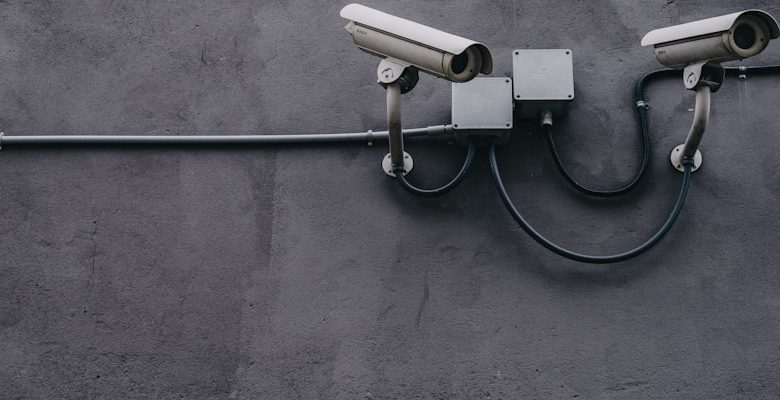Auditing Smart Contracts for Security Vulnerabilities

- Understanding the importance of auditing smart contracts
- Common security vulnerabilities found in smart contracts
- Best practices for auditing smart contracts
- Tools and techniques for detecting security vulnerabilities in smart contracts
- The role of third-party auditors in ensuring smart contract security
- Case studies of security breaches due to un-audited smart contracts
Understanding the importance of auditing smart contracts
Understanding the significance of auditing smart contracts is crucial in ensuring the security and reliability of blockchain-based applications. Smart contracts are self-executing contracts with the terms of the agreement directly written into code. They are used to automate and enforce the execution of agreements in a transparent and secure manner.
When auditing smart contracts, developers and auditors carefully review the code to identify security vulnerabilities, bugs, and potential loopholes that could be exploited by malicious actors. By conducting a thorough audit, potential risks can be mitigated, and the overall security of the smart contract can be enhanced.
Without proper auditing, smart contracts are vulnerable to various security threats, such as hacking, theft, and manipulation. These vulnerabilities can lead to significant financial losses, reputation damage, and legal implications for the parties involved. Therefore, auditing smart contracts is essential to protect the integrity and trustworthiness of blockchain applications.
Common security vulnerabilities found in smart contracts
Smart contracts are prone to various security vulnerabilities that can be exploited by malicious actors. These vulnerabilities can lead to financial losses and other serious consequences. It is important to be aware of these common security vulnerabilities when auditing smart contracts for potential risks. Some of the most prevalent vulnerabilities include:
– Reentrancy: This vulnerability allows an attacker to repeatedly call a function before the previous function call is completed, potentially draining funds from the contract.
– Integer Overflow and Underflow: These vulnerabilities occur when an arithmetic operation results in a number that is too large or too small to be stored in the data type used, leading to unexpected behavior.
– Unchecked External Calls: When a smart contract interacts with external contracts, it is crucial to validate the input data to prevent malicious contracts from executing unauthorized functions.
– Denial of Service (DoS): Attackers can exploit vulnerabilities in smart contracts to overwhelm the network with a large number of transactions, causing delays and disrupting normal operations.
– Lack of Proper Access Control: Failure to implement proper access control mechanisms can allow unauthorized users to manipulate the contract’s state and execute restricted functions.
By identifying and addressing these common security vulnerabilities in smart contracts, developers can enhance the overall security and reliability of their decentralized applications. Conducting thorough audits and implementing best practices can help mitigate the risks associated with these vulnerabilities and protect the integrity of the blockchain ecosystem.
Best practices for auditing smart contracts
When auditing smart contracts for security vulnerabilities, it is crucial to follow best practices to ensure the integrity and safety of the contract. Here are some key guidelines to keep in mind:
- Thoroughly review the code: Carefully examine the code line by line to identify any potential vulnerabilities or bugs that could be exploited.
- Test extensively: Conduct rigorous testing to simulate real-world scenarios and ensure that the smart contract functions as intended.
- Use automated tools: Take advantage of automated tools and scanners to help identify common security issues and streamline the auditing process.
- Implement security best practices: Follow established security best practices, such as input validation, access control, and data encryption, to mitigate potential risks.
- Engage with security experts: Consider working with experienced security professionals who specialize in smart contract auditing to leverage their expertise and insights.
By adhering to these best practices, you can significantly reduce the likelihood of security vulnerabilities in your smart contracts and protect both your assets and users from potential threats.
Tools and techniques for detecting security vulnerabilities in smart contracts
When auditing smart contracts for security vulnerabilities, there are several tools and techniques that can be utilized to ensure the code is secure and free from potential exploits. Below are some common methods used by security experts:
- Automated Analysis Tools: Utilizing automated tools such as Mythril and Securify can help scan smart contracts for known vulnerabilities and potential weaknesses. These tools can quickly identify common issues such as reentrancy bugs or unchecked external calls.
- Manual Code Review: Conducting a thorough manual code review is essential to catch vulnerabilities that automated tools may overlook. Experienced auditors can analyze the smart contract code line by line to identify any potential security risks.
- Static Analysis: Static analysis tools like Slither can help identify vulnerabilities by analyzing the code without executing it. These tools can detect issues such as integer overflow, uninitialized variables, and other common programming mistakes.
- Dynamic Analysis: Dynamic analysis tools like Echidna can test smart contracts in a live environment to simulate real-world conditions and identify vulnerabilities that may only manifest during execution. This can help uncover issues like logic bugs or unexpected behavior.
- Fuzz Testing: Fuzz testing involves inputting random or unexpected data into the smart contract to see how it responds. This can help uncover vulnerabilities related to input validation or unexpected edge cases that could be exploited by attackers.
By utilizing a combination of automated tools, manual review, static and dynamic analysis, as well as fuzz testing, security auditors can thoroughly assess smart contracts for security vulnerabilities and ensure they are robust and secure against potential threats.
The role of third-party auditors in ensuring smart contract security
Third-party auditors play a crucial role in ensuring the security of smart contracts. These auditors are independent entities that specialize in reviewing smart contract code to identify vulnerabilities and potential risks. By conducting thorough audits, third-party auditors help to mitigate the chances of security breaches and protect users from potential financial losses.
One of the main advantages of using third-party auditors is their expertise in security best practices and knowledge of common vulnerabilities. These auditors have experience in identifying coding errors, logic flaws, and other issues that could compromise the integrity of a smart contract. By leveraging their expertise, organizations can benefit from an additional layer of security and peace of mind.
Furthermore, third-party auditors provide an objective assessment of the smart contract code, free from any conflicts of interest. This unbiased review helps to ensure that the code is secure and reliable, giving users confidence in the functionality of the smart contract. In addition, third-party auditors can offer recommendations for improvements and best practices to enhance the overall security of the code.
In conclusion, third-party auditors play a vital role in safeguarding the security of smart contracts. By leveraging their expertise and unbiased assessments, organizations can minimize the risks associated with vulnerabilities and ensure the integrity of their smart contract code. Investing in third-party audits is a proactive measure that can help prevent security breaches and protect both users and organizations from potential harm.
Case studies of security breaches due to un-audited smart contracts
Several security breaches have been attributed to un-audited smart contracts, highlighting the importance of thorough audits in the development process. Here are some case studies that demonstrate the risks associated with unchecked smart contracts:
- A decentralized autonomous organization (DAO) was exploited in 2016 due to a vulnerability in its smart contract code. The attacker managed to siphon off a significant amount of funds, leading to a contentious hard fork to reverse the transaction.
- In 2017, the Parity multi-signature wallet suffered a critical vulnerability that allowed a user to accidentally lock up over $300 million worth of Ether. This incident showcased the impact of a single coding error on a large scale.
- The Bancor decentralized exchange experienced a security breach in 2018, resulting in the theft of $23.5 million worth of cryptocurrency. The attack exploited a flaw in the smart contract code, emphasizing the need for comprehensive audits.
These examples underscore the importance of auditing smart contracts to identify and mitigate potential security vulnerabilities. By conducting thorough reviews of the code, developers can prevent costly breaches and protect user funds in decentralized applications.



